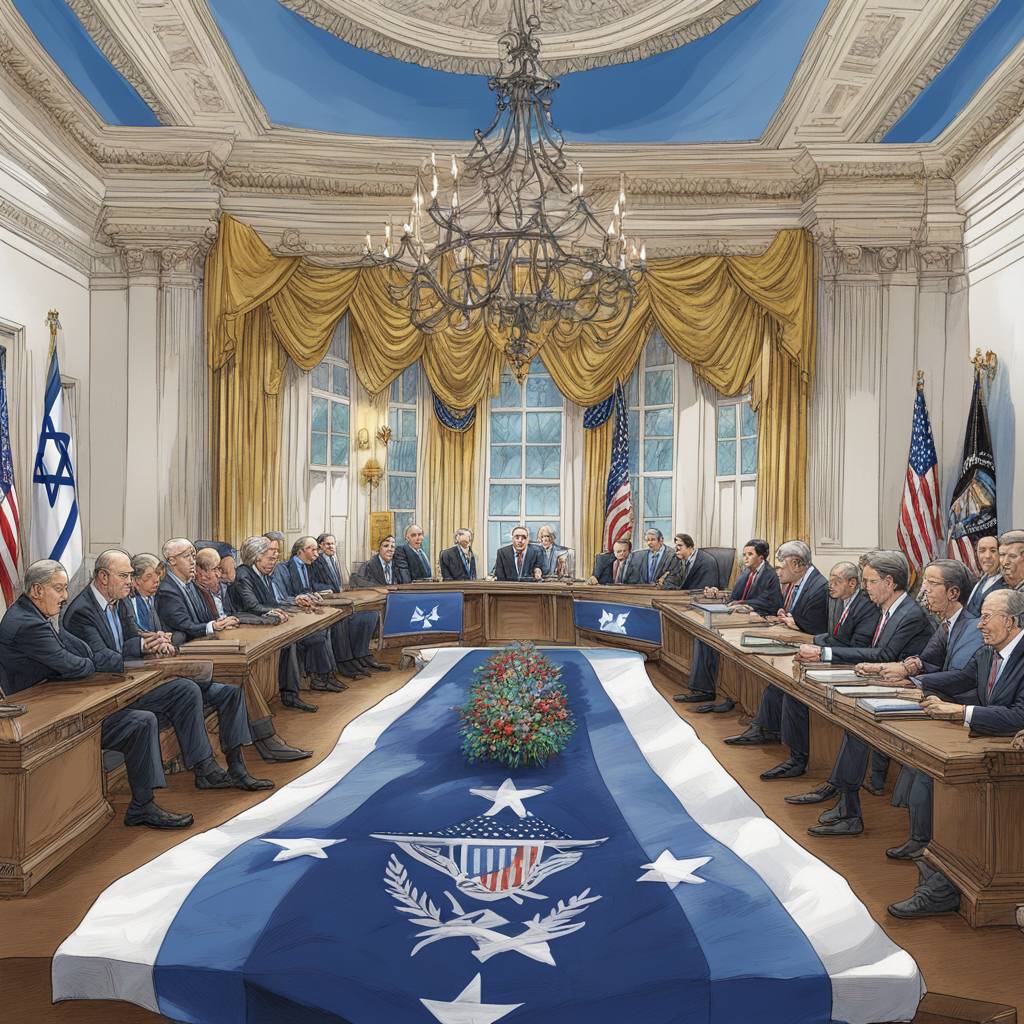In a recent press briefing, White House Press Secretary Karine Jean-Pierre confirmed that the U.S. is working to reschedule a meeting with a delegation from Israel to discuss Rafah. This comes after Israeli Prime Minister Benjamin Netanyahu canceled the meeting in response to the U.S. not vetoing a United Nations Security Council resolution calling for a cease-fire in Gaza. Jean-Pierre stated that the prime minister’s office has agreed to reschedule the meeting and they are working to find a convenient date.
Netanyahu’s decision to cancel the meeting came after the U.S. allowed the UN resolution calling for a cease-fire to pass by abstaining from the vote. All other UN Security Council members voted in favor of the resolution. The prime minister’s office released a statement saying that the cancellation was due to the U.S. abandoning its policy that linked a cease-fire to the release of hostages. However, Jean-Pierre mentioned at the briefing that the U.S. is still discussing a hostage deal and remains hopeful that they can help establish a temporary cease-fire and bring humanitarian aid into Gaza.
The rescheduling of the meeting to discuss Rafah comes amid continued talks between U.S. and Israeli officials. U.S. Defense Secretary Lloyd Austin met with Israeli Defense Minister Yoav Gallant on Tuesday and reaffirmed the U.S.’s support for Israel, despite Netanyahu’s initial move to cancel the meeting. Jean-Pierre described the talks as constructive, with Rafah being one of the topics discussed. President Biden had requested the delegation to come to Washington to discuss Israel’s planned operations in Rafah, a move that Vice President Kamala Harris previously labeled as a “huge mistake.”
Netanyahu’s decision to cancel the meeting was made shortly after the U.S. abstained from the UN vote on the resolution calling for a cease-fire. The resolution aimed for a cease-fire during the Islamic holy month of Ramadan, the release of all hostages, and increased access for humanitarian aid to Gaza. Despite warnings from world leaders about the humanitarian impacts of an invasion in Rafah, Netanyahu has continued to express his plans to invade the area to destroy Hamas. The UN’s top humanitarian official has also warned that military operations in Rafah could lead to a severe humanitarian crisis in Gaza.
In a post on X, Netanyahu’s office mentioned that the prime minister met with a bipartisan U.S. congressional delegation organized by the lobbying group American Israel Public Affairs Committee. During the meeting, Netanyahu emphasized the importance of maintaining bipartisan support and reiterated his stance on the war, stating that “there is no substitute for victory.” The rescheduling of the meeting and ongoing discussions between U.S. and Israeli officials highlight the complex diplomatic situation in the region and the challenges of balancing political interests with humanitarian concerns.


